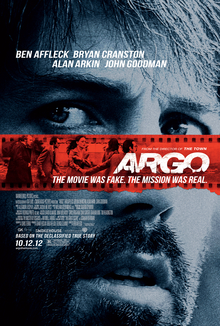In the future, time travel is invented and coopted by
underworld bosses, who use it to send people they want to get rid of back 30
years. These victims are disposed of by “loopers” – assassins who are paid in
silver. Joe (Joseph Gordon-Levitt) is one such looper: competent at his job,
but drug-addled and disillusioned. Joe’s plans of escaping the life are
thwarted by the arrival of his older, future self (Bruce Willis), who is
determined to track down and kill a future despot, thereby preventing the
eventual murder of his wife.
From The Terminator
to 12 Monkeys, Looper pays homage to a variety of sci fi classics, but spiritually
speaking, the film it evokes the most may very well be Donnie Darko. Like that movie, Looper
offers a bold vision that pushes intellectual boundaries. Also like that movie,
Looper is frustratingly perplexing on
first viewing and gets bogged down by the murkiness of its reality-defying
mechanics.
The third feature from writer/director Rian Johnson, Looper continues to solidify his
reputation as a distinctive stylist. The best way to describe the film’s
fictive future is retro chic: Joe’s prized possession is a Mazda Miata, and the
bad guys don’t carry lasers but ridiculously large revolvers. This blending of
new and old disarms viewers and toys with dystopian clichés, as does the film’s
violence.
Lending substance to this style is a competent cast of big names
and lesser-known talents. Between this and The
Dark Knight Rises, Gordon-Levitt has settled all doubts regarding his
credibility as an action protagonist. Willis, who retired those doubts decades
ago, is in rare form here: his Joe is absolutely relentless, but he continues
to hold onto his conscience as he does unconsciously things. Englishwoman Emily
Blunt is surprisingly convincing as a Kansas farm mother, and newcomer Pierce
Gagnon is downright creepy to watch as her precocious, “gifted” child. Rounding
out the cast are Jeff Daniels (as the affably sinister looper boss), Johnson
film veteran Noah Segan (as his inept henchman), and Paul Dano (as Joe’s friend
and colleague).
Unfortunately, the talent on both sides of the camera cannot
entirely compensate for the massive holes in the execution. To put it simply,
for as hard as Looper tries to suck
us into its world, it still leaves too many questions unanswered. We never
learn, for instance, why the loopers are necessary (it is off-handedly
mentioned that forensic technology is greatly improved in the future, but it
still seems a stretch, especially given the power and influence the underworld
is supposed to have). We also don’t see any other instances of time travel
being used voluntarily (i.e. to escape the wrath of the future Rainmaker’s
reign of terror), nor do we ever learn the genesis of the film’s telekinetic
abilities.
All told, Looper is
audacious, thought-provoking, and often entertaining but also something of a
disappointment. Some kind of expanded edition could probably clear up a few of
the film’s mysterious, but until then, accept it as a good film that could have
been even better.
8/10





